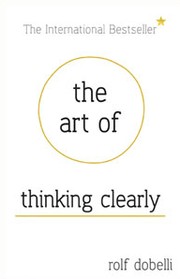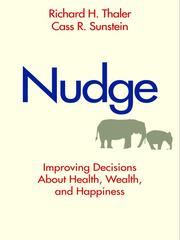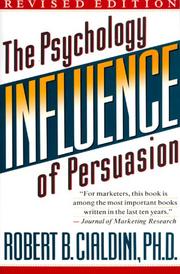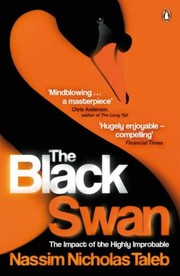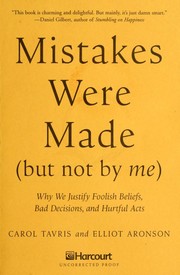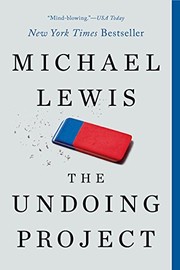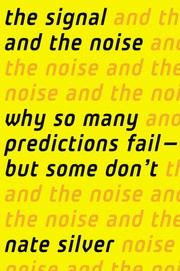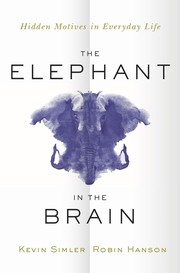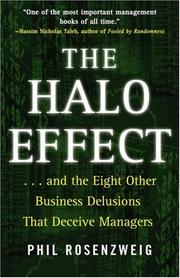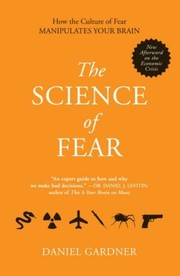Are you fascinated by the quirks of the human mind? Dive into the world of cognitive biases with these 20 captivating books. Whether you’re a psychology enthusiast or simply curious about the ways our brains can deceive us, these books on cognitive bias offer insight, analysis, and practical applications. From classic works to cutting-edge research, this curated list will expand your understanding of the fascinating world of cognitive bias. Let’s explore the best books about cognitive bias that will challenge your thinking and perception.
Contents
- 1 20 Best Books About Cognitive Bias
- 2 Thinking, Fast and Slow
- 3 The Art of Thinking Clearly
- 4 Predictably Irrational
- 5 Nudge: Improving Decisions About Health, Wealth, and Happiness
- 6 Influence: The Psychology of Persuasion
- 7 The Black Swan: The Impact of the Highly Improbable
- 8 Mistakes Were Made (But Not by Me): Why We Justify Foolish Beliefs, Bad Decisions, and Hurtful Acts
- 9 The Undoing Project: A Friendship That Changed Our Minds
- 10 The Power of Habit: Why We Do What We Do in Life and Business
- 11 The Signal and the Noise: Why So Many Predictions Fail – But Some Don’t
- 12 The Elephant in the Brain: Hidden Motives in Everyday Life
- 13 The Halo Effect: … and the Eight Other Business Delusions That Deceive Managers
- 14 The Righteous Mind: Why Good People Are Divided by Politics and Religion
- 15 The Upside of Irrationality: The Unexpected Benefits of Defying Logic at Work and at Home
- 16 The Science of Fear: How the Culture of Fear Manipulates Your Brain
- 17 The Believing Brain: From Ghosts and Gods to Politics and Conspiracies—How We Construct Beliefs and Reinforce Them as Truths
- 18 The Illusion of Conscious Will
- 19 Predictably Irrational: The Hidden Forces That Shape Our Decisions
- 20 You Are Not So Smart: Why You Have Too Many Friends on Facebook, Why Your Memory Is Mostly Fiction, and 46 Other Ways You’re Deluding Yourself
- 21 Blink: The Power of Thinking Without Thinking
- 22 Conclusion
- 23
- 24 Reading List of Gang Life Books – 2024 Update
- 25 Reading List of Economic Collapse Books – 2024 Update
- 26 Top 20 Best Books on Dystopian Society:2024 Edition
20 Best Books About Cognitive Bias
Thinking, Fast and Slow
by Daniel Kahneman
Thinking, Fast and Slow by Daniel Kahneman is a captivating exploration of the human mind and its tendency towards cognitive biases. In this groundbreaking book, Kahneman, a Nobel Prize-winning psychologist, delves into the two systems that drive the way we think: the fast, intuitive, and emotional system, and the slow, deliberate, and logical system. Through a series of engaging experiments and real-life examples, Kahneman reveals how these two systems shape our judgments and decision-making processes. He sheds light on the various cognitive biases that affect our everyday choices, from overconfidence to the framing effect. This eye-opening book provides valuable insights into the workings of the mind and offers practical strategies for overcoming cognitive biases. Thinking, Fast and Slow is a must-read for anyone interested in understanding the complexities of human thought and behavior.
The Art of Thinking Clearly
by Rolf Dobelli
The Art of Thinking Clearly by Rolf Dobelli is a compelling book on cognitive bias that explores the common mental pitfalls that can affect decision-making. Dobelli delves into the various cognitive biases that influence our thoughts and behaviors, shedding light on why we often make irrational choices. Through engaging anecdotes and real-life examples, the book offers practical insights into how to recognize and overcome these biases to make better decisions in every aspect of life. Dobelli’s writing style is both insightful and accessible, making this cognitive bias book a valuable read for anyone interested in understanding the workings of the human mind. The Art of Thinking Clearly is a thought-provoking exploration of the ways in which our thinking can be clouded by biases, and a guide to achieving greater clarity in our decision-making processes.
Predictably Irrational
by Dan Ariely
Predictably Irrational by Dan Ariely is a captivating book about cognitive bias, exploring the irrational behaviors that influence our decision-making processes. Through thought-provoking experiments and real-life examples, Ariely delves into the hidden forces that drive our choices, revealing the systematic patterns of irrationality that govern our everyday lives. This insightful book offers a fascinating look at the complexities of human behavior, shedding light on the subconscious factors that impact our perceptions and judgments. With engaging storytelling and compelling insights, Predictably Irrational challenges readers to rethink their understanding of decision-making and provides valuable lessons for navigating the maze of cognitive biases. Whether you’re a psychology enthusiast or simply curious about the quirks of human nature, this cognitive bias book will leave you with a deeper understanding of the irrational tendencies that shape our world.
Nudge: Improving Decisions About Health, Wealth, and Happiness
by Richard H. Thaler and Cass R. Sunstein
Nudge: Improving Decisions About Health, Wealth, and Happiness is a groundbreaking book on cognitive bias by Richard H. Thaler and Cass R. Sunstein. This insightful and engaging read explores the concept of ‘nudging’ – the idea that small changes in how choices are presented can significantly influence decision-making. The authors shed light on the ways in which cognitive biases impact our daily choices, whether in matters of health, finances, or overall happiness. Through real-world examples and practical advice, Thaler and Sunstein offer a compelling argument for designing environments that help people make better decisions without restricting their freedom of choice. Nudge is a must-read for anyone interested in understanding human behavior and the psychology of decision-making, making it a valuable addition to the field of behavioral economics and cognitive bias studies.
Influence: The Psychology of Persuasion
by Robert B. Cialdini
Influence: The Psychology of Persuasion by Robert B. Cialdini is a fascinating exploration of the psychology behind why people say “yes” and how to apply these principles ethically. Cialdini delves into the six universal principles of influence, including reciprocity, commitment, social proof, authority, liking, and scarcity. Throughout the book, Cialdini draws on research and real-life examples to illustrate how these principles can be used to influence others and how to defend against them. This acclaimed book on cognitive bias is a must-read for anyone interested in understanding the psychology of persuasion and the ways in which we can be influenced without even realizing it. It’s a thought-provoking and eye-opening cognitive bias book that will change the way you view the world around you.
The Black Swan: The Impact of the Highly Improbable
by Nassim Nicholas Taleb
The Black Swan by Nassim Nicholas Taleb is a thought-provoking exploration of the impact of highly improbable events on our lives and the world around us. Through captivating storytelling and rigorous analysis, Taleb delves into the concept of cognitive bias, revealing how our tendency to underestimate the likelihood of rare, unpredictable events can lead to significant consequences. This groundbreaking book challenges readers to reevaluate their understanding of risk, uncertainty, and decision-making, offering valuable insights into how we can better navigate the unpredictable nature of our world. With its compelling narrative and profound implications, The Black Swan is a must-read for anyone interested in understanding and overcoming cognitive biases.
Mistakes Were Made (But Not by Me): Why We Justify Foolish Beliefs, Bad Decisions, and Hurtful Acts
by Carol Tavris and Elliot Aronson
Mistakes Were Made (But Not by Me) is a thought-provoking book about cognitive bias, written by Carol Tavris and Elliot Aronson. The authors delve into the fascinating world of human psychology, exploring why we justify foolish beliefs, bad decisions, and hurtful acts. Through engaging storytelling and insightful research, Tavris and Aronson examine the ways in which our minds deceive us, leading us to make errors in judgment and rationalize our behavior. They uncover the powerful mechanisms of self-justification and cognitive dissonance that shape our perceptions and attitudes, offering valuable insights into human behavior and decision-making. This compelling book challenges readers to confront their own biases and reconsider their understanding of themselves and others. Mistakes Were Made (But Not by Me) is a must-read for anyone interested in understanding the complexities of the human mind and the ways in which we deceive ourselves.
The Undoing Project: A Friendship That Changed Our Minds
by Michael Lewis
The Undoing Project: A Friendship That Changed Our Minds by Michael Lewis is a captivating exploration of the groundbreaking work of psychologists Daniel Kahneman and Amos Tversky. This captivating book delves into their pioneering research that revolutionized our understanding of human decision-making and cognitive biases. Lewis masterfully illuminates the profound impact of their collaboration, revealing how their work has influenced fields ranging from economics to medicine. This compelling narrative is a must-read for anyone interested in psychology, behavioral economics, or the intricacies of the human mind. The Undoing Project is a thought-provoking and insightful book about cognitive bias that will forever change the way you perceive your own thoughts and decisions.
The Power of Habit: Why We Do What We Do in Life and Business
by Charles Duhigg
The Power of Habit by Charles Duhigg is a captivating exploration of the science behind habits and their impact on our lives and businesses. Duhigg delves into the neurological processes that drive habit formation, revealing the powerful role they play in shaping our behavior. Through compelling real-life examples and insightful case studies, the book provides a deep understanding of how habits work and how they can be transformed. Duhigg also highlights the significance of habits in organizational culture and the strategies for changing individual and collective habits. Whether you’re looking to break a bad habit or create positive change in your personal or professional life, this book on cognitive bias offers valuable insights and practical tools to help you understand and harness the power of habit.
The Signal and the Noise: Why So Many Predictions Fail – But Some Don’t
by Nate Silver
The Signal and the Noise by Nate Silver is a fascinating exploration of the art and science of prediction. Silver, a renowned statistician and founder of FiveThirtyEight, delves into the world of forecasting and examines why so many predictions fail while some succeed. The book delves into the challenges of separating the meaningful signals from the noisy background, covering a wide range of fields from economics and sports to weather forecasting and earthquake prediction. With a keen emphasis on the importance of data analysis and probability, Silver offers valuable insights into the pitfalls of human judgment and decision-making, making it a thought-provoking read for anyone interested in understanding the complexities of prediction. This book is an insightful exploration of the cognitive biases that often hinder accurate predictions, offering valuable lessons for anyone seeking to improve their forecasting skills.
The Elephant in the Brain: Hidden Motives in Everyday Life
by Kevin Simler and Robin Hanson
The Elephant in the Brain: Hidden Motives in Everyday Life is a thought-provoking book on cognitive bias that delves into the unconscious forces that drive human behavior. Authors Kevin Simler and Robin Hanson explore the idea that much of our behavior is driven by hidden motives, often at odds with our professed intentions. They shine a light on the concept of cognitive bias, showing how we often deceive ourselves and others about our true motivations. The book provides fascinating insights into various aspects of human behavior, from our social interactions to our political and economic decisions. With clear and engaging writing, the authors challenge readers to rethink their understanding of human nature and consider the hidden influences that shape our everyday lives.
The Halo Effect: … and the Eight Other Business Delusions That Deceive Managers
by Phil Rosenzweig
The Halo Effect: … and the Eight Other Business Delusions That Deceive Managers is a thought-provoking book on cognitive bias in the business world. Author Phil Rosenzweig explores the common pitfalls that managers fall into due to cognitive bias, such as the halo effect, where positive qualities in one aspect of a business can create a skewed perception of the overall performance. Rosenzweig delves into eight other delusions that can deceive managers, shedding light on how these biases can lead to flawed decision-making and ultimately impact the success of a business. This insightful and engaging book about cognitive bias challenges readers to critically examine their own thinking and approach to management, providing valuable lessons for leaders in any industry.
The Righteous Mind: Why Good People Are Divided by Politics and Religion
by Jonathan Haidt
The Righteous Mind: Why Good People Are Divided by Politics and Religion by Jonathan Haidt is a thought-provoking exploration of the psychological and moral foundations that shape our political and religious beliefs. Haidt delves into the complexities of human morality, shedding light on why people with different ideologies often struggle to understand one another. Through the lens of social psychology, he examines how our moral intuitions and emotions influence our decision-making processes, leading to deep-seated divisions in society. This insightful book on cognitive bias challenges readers to reevaluate their own perspectives and consider the underlying factors that drive their beliefs. With compelling research and engaging storytelling, Haidt offers a fresh perspective on the cognitive processes that underpin our moral and political judgments, making it a must-read for anyone interested in understanding the intricacies of human nature.
The Upside of Irrationality: The Unexpected Benefits of Defying Logic at Work and at Home
by Dan Ariely
The Upside of Irrationality, written by Dan Ariely, is a fascinating exploration of human behavior and decision-making. In this insightful book on cognitive bias, Ariely delves into the unexpected benefits of defying logic at work and at home. Through a series of engaging and thought-provoking experiments, he explores how our irrational tendencies can actually lead to positive outcomes in various aspects of our lives. Ariely challenges the traditional notion that rational decision-making is always the best approach, and instead offers a fresh perspective on the ways in which our cognitive biases can be harnessed for good. Whether it’s in the workplace or in our personal relationships, this cognitive bias book provides valuable insights into the complexities of human behavior and the advantages of embracing our irrational tendencies.
The Science of Fear: How the Culture of Fear Manipulates Your Brain
by Daniel Gardner
The Science of Fear: How the Culture of Fear Manipulates Your Brain by Daniel Gardner is a fascinating exploration of the ways in which our brains are influenced by fear. This book on cognitive bias delves into the psychological mechanisms that drive our responses to fear-inducing stimuli, and how these can be manipulated by the media, politicians, and other influential figures. Gardner provides compelling insights into the cognitive biases that shape our perceptions and decision-making, shedding light on the ways in which our fears can be exploited for various agendas. Through a combination of research, real-life examples, and engaging storytelling, this cognitive bias book offers readers a thought-provoking journey into the inner workings of the human mind, and a deeper understanding of the culture of fear that pervades our society.
The Believing Brain: From Ghosts and Gods to Politics and Conspiracies—How We Construct Beliefs and Reinforce Them as Truths
by Michael Shermer
The Believing Brain by Michael Shermer is a thought-provoking exploration of how our minds construct and reinforce beliefs. Shermer delves into the psychology behind our beliefs, tackling topics from religion and the supernatural to politics and conspiracy theories. Through engaging storytelling and compelling research, he delves into the mechanisms of belief formation, highlighting the role of cognitive biases in shaping our views of the world. The book provides a fascinating look at how our brains often seek patterns and connections, leading us to accept certain beliefs as truth, even in the absence of evidence. Shermer’s insights shed light on the human tendency to hold onto beliefs even when faced with contradictory information, making it a must-read for anyone interested in understanding the complexities of human cognition. This book about cognitive bias is a captivating journey into the inner workings of the believing brain.
The Illusion of Conscious Will
by Daniel M. Wegner
The Illusion of Conscious Will by Daniel M. Wegner is a thought-provoking book on cognitive bias that challenges our understanding of the relationship between our thoughts and actions. Wegner explores the concept of conscious will and argues that our sense of control over our actions is an illusion, influenced by cognitive biases and unconscious processes. Through engaging examples and compelling research, the book sheds light on the complexities of human consciousness and decision-making, offering a fascinating exploration of the ways in which our minds can deceive us. With its insightful analysis and accessible writing style, this cognitive bias book is a must-read for anyone interested in psychology, philosophy, or the mysteries of the human mind.
Predictably Irrational: The Hidden Forces That Shape Our Decisions
by Dan Ariely
Predictably Irrational: The Hidden Forces That Shape Our Decisions by Dan Ariely is a captivating book on cognitive bias. Ariely, a renowned behavioral economist, delves into the fascinating world of human decision-making, revealing the hidden forces that influence our choices. Through a series of engaging experiments and real-life examples, he uncovers the irrationality that governs our behavior, from our tendency to overvalue free items to our susceptibility to social influences. This insightful book about cognitive bias offers a fresh perspective on why we make the decisions we do, and how we can better understand and navigate the irrational forces at play in our lives. Ariely’s accessible writing style and thought-provoking insights make Predictably Irrational a must-read for anyone interested in psychology, economics, or simply the quirks of human nature.
You Are Not So Smart: Why You Have Too Many Friends on Facebook, Why Your Memory Is Mostly Fiction, and 46 Other Ways You’re Deluding Yourself
by David McRaney
You Are Not So Smart: Why You Have Too Many Friends on Facebook, Why Your Memory Is Mostly Fiction, and 46 Other Ways You’re Deluding Yourself by David McRaney is a captivating exploration of the human mind’s tendency to deceive itself. This captivating book delves into the myriad ways our brains are wired to mislead us, from the illusions of memory to the allure of social media. With engaging storytelling and insightful research, McRaney shines a light on the fascinating world of cognitive bias, offering a compelling look at the ways in which our minds can lead us astray. Whether you’re a psychology enthusiast or simply curious about the quirks of human behavior, this book about cognitive bias will challenge your perceptions and leave you questioning everything you thought you knew about the way your mind works.
Blink: The Power of Thinking Without Thinking
by Malcolm Gladwell
Blink: The Power of Thinking Without Thinking by Malcolm Gladwell is a captivating exploration of the unconscious mind and the power of quick decisions. In this thought-provoking book, Gladwell delves into the concept of rapid cognition and its impact on our everyday lives. Through engaging anecdotes and scientific research, he discusses how our unconscious biases and instincts can influence our decision-making process, sometimes leading to remarkable accuracy and other times to critical errors. This insightful book on cognitive bias challenges traditional notions of rational decision-making and invites readers to consider the hidden forces that shape their judgments. With its compelling storytelling and fascinating insights, Blink is a must-read for anyone interested in understanding the complexities of human behavior and decision-making.
Conclusion
In conclusion, these 20 books about Cognitive Bias offer valuable insights into the human mind and the various ways our thinking can be influenced. Whether you’re interested in psychology, decision-making, or simply understanding your own thought processes better, these books provide thought-provoking reading material that will challenge and expand your understanding of cognitive biases. Dive into these books and embark on a journey of self-discovery and knowledge about the fascinating world of cognitive bias.
Which Cognitive Bias book is best?
The best book on Cognitive Bias can vary with personal preference, but three widely recommended titles are:
- Thinking, Fast and Slow by Daniel Kahneman,
- The Art of Thinking Clearly by Rolf Dobelli,
- Predictably Irrational by Dan Ariely.
Each offers valuable insights and could be a great starting point.
What are the best books to learn about Cognitive Bias?
For those looking to learn about Cognitive Bias, there is a wealth of literature that can provide a comprehensive understanding of the subject. Some of the most highly recommended books include:
- Thinking, Fast and Slow by Daniel Kahneman,
- The Art of Thinking Clearly by Rolf Dobelli,
- Predictably Irrational by Dan Ariely,
- Nudge: Improving Decisions About Health, Wealth, and Happiness by Richard H. Thaler and Cass R. Sunstein,
- Influence: The Psychology of Persuasion by Robert B. Cialdini,
- The Black Swan: The Impact of the Highly Improbable by Nassim Nicholas Taleb,
- Mistakes Were Made (But Not by Me): Why We Justify Foolish Beliefs, Bad Decisions, and Hurtful Acts by Carol Tavris and Elliot Aronson,
- The Undoing Project: A Friendship That Changed Our Minds by Michael Lewis,
- The Power of Habit: Why We Do What We Do in Life and Business by Charles Duhigg,
- The Signal and the Noise: Why So Many Predictions Fail – But Some Don’t by Nate Silver
These books offer a range of perspectives on Cognitive Bias, covering various aspects and approaches to the subject.
What are the best books on Cognitive Bias?
The best books on Cognitive Bias include:
- Thinking, Fast and Slow by Daniel Kahneman,
- The Art of Thinking Clearly by Rolf Dobelli,
- The Elephant in the Brain: Hidden Motives in Everyday Life by Kevin Simler and Robin Hanson,
- The Halo Effect: … and the Eight Other Business Delusions That Deceive Managers by Phil Rosenzweig,
- The Undoing Project: A Friendship That Changed Our Minds by Michael Lewis,
- The Black Swan: The Impact of the Highly Improbable by Nassim Nicholas Taleb.
Each offers unique insights into the subject. While these books on the topic of Cognitive Bias are highly regarded, it’s important to note that any list of ‘best’ books is subjective and reflects a range of opinions.
What are the best Cognitive Bias books of all time?
Choosing the best Cognitive Bias books of all time can vary depending on who you ask, but seven titles that are often celebrated include
- Thinking, Fast and Slow by Daniel Kahneman,
- The Art of Thinking Clearly by Rolf Dobelli,
- Influence: The Psychology of Persuasion by Robert B. Cialdini,
- The Undoing Project: A Friendship That Changed Our Minds by Michael Lewis,
- The Signal and the Noise: Why So Many Predictions Fail – But Some Don’t by Nate Silver,
- The Halo Effect: … and the Eight Other Business Delusions That Deceive Managers by Phil Rosenzweig,
- and The Elephant in the Brain: Hidden Motives in Everyday Life by Kevin Simler and Robin Hanson.
Each of these books has made a significant impact in the field of Cognitive Bias and continues to be influential today.


